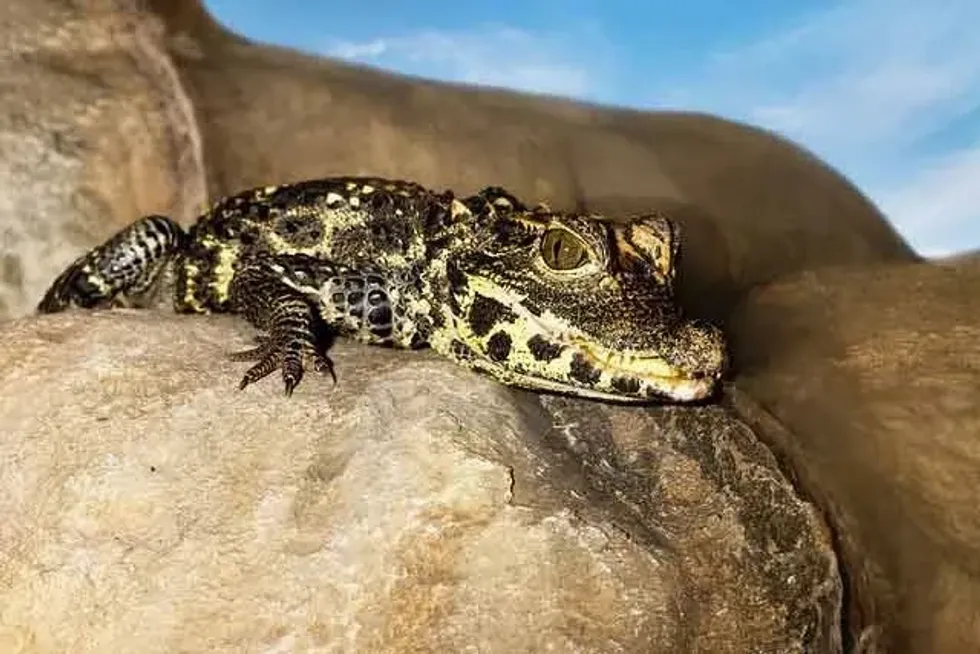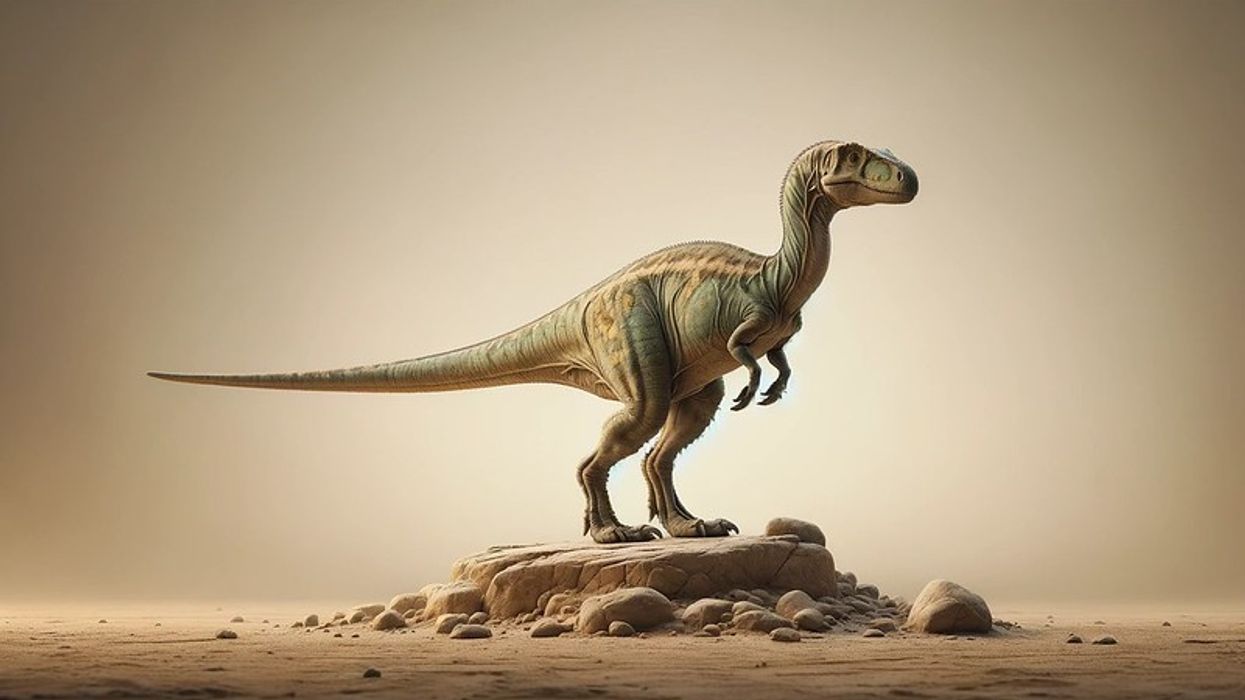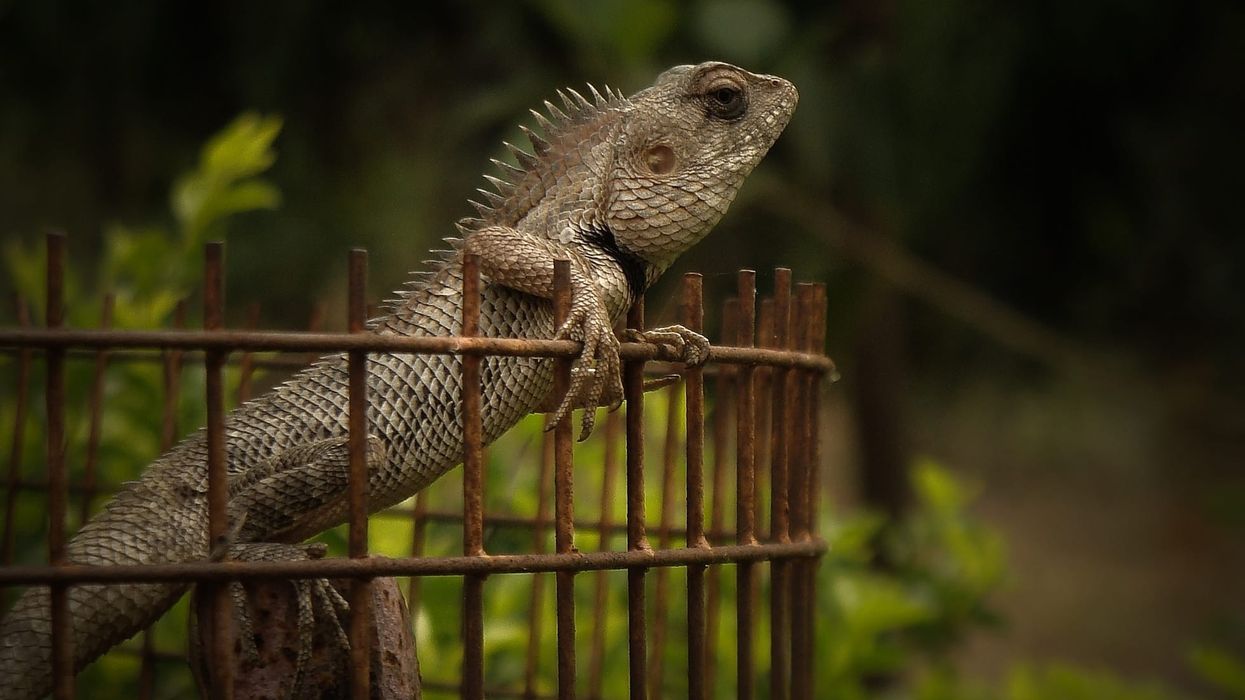One of the unique reptiles currently in existence, the dwarf crocodile, also known as the African dwarf crocodile, is quick and broad-snouted. Alternately, it is also called the bony crocodile.
It is a reptile of African origin that is currently the smallest living species of crocodile.
Further sampling of this creature has identified three genetically distinct populations.
Some opinions also state that these subspecies should be elevated to the status of full species. Just like many others from the species, the dwarf crocodile is a creature of the night; it is nocturnal in nature and often prefers to hunt at night, using its speed and stealth as its main weapons.
Like many other reptiles, the dwarf crocodile is also a cold-blooded animal and enjoys its time under the sun to soak up sunlight while snoozing away on a log. Here, we have lots of interesting west African dwarf crocodile facts that everyone will enjoy.
Let's take a look at these interesting facts about African dwarf crocodile and if you do like these, then do read Indian star tortoise and sand lizard facts.
Dwarf Crocodile Interesting Facts
What type of animal is a dwarf crocodile?
The dwarf crocodile is a reptile found in central and west parts of Africa, the smallest crocodile from the species and non-venomous by nature. Even though they aren't venomous, they still are a very dangerous predator who lurks in the still waters, ready to pounce on its prey.
What class of animal does a dwarf crocodile belong to?
Dwarf crocodile (Osteolaemus tetraspis) belongs to the class Reptilia, considered nocturnal and cold-blooded by nature.
How many dwarf crocodiles are there in the world?
There are anywhere between 25,000 to 100,000 dwarf crocodiles left in the world. Sadly due to habitat loss and illegal poaching, their numbers are steadily on the decline, day by day.
Where does a dwarf crocodile live?
Dwarf crocodiles live anywhere near water, from rainforests to swamps and even slow-moving rivers of Central and West Africa.
What is a dwarf crocodile's habitat?
The habitat of dwarf crocodiles ranges from tropical regions of Sub-Saharan to West and Central Africa. These regions are mostly covered in rainforests and tropical lowlands.
Who does dwarf crocodile live with?
Dwarf crocodiles are solitary by nature, they prefer to hunt and live alone by themselves, but sometimes you may find them in odd groups known as a float or a bask.
How long does a dwarf crocodile live?
The average life span of a dwarf crocodile is anywhere between 50-80 years but few have been known to live for as long as 100 years.
How do they reproduce?
Generally, dwarf crocodiles start mating at the beginning of the wet season which usually starts from May to June. A male will usually mate with all the females who share his territory. Females later start making a nest by gathering the rotten vegetation together and makes a mound, where she then proceeds to lay her eggs.
What is their conservation status?
As dwarf crocodiles face habitat loss and the threat of constant poaching, the number of this species is drastically decreasing, which has pushed this species to a Vulnerable animal on the conservative status.
Dwarf Crocodile Fun Facts
What do dwarf crocodiles look like?
Dwarf crocodiles look like the smaller version of the otherwise large crocodiles, but with a smaller hood. With its eyes and nostrils that are equally small but equally sharp. Their small size and appearance give them the edge in speed as well. This species of crocodile is known for its small size and appearance.
How cute are they?
Usually much smaller than their average cousins, dwarf crocodiles are smaller and way cuter - well, as cute as a sharp-tooth reptile can be. But don't let this cuteness fool you; they are still a deadly hunter who waits patiently for its prey at night in the still waters and pounces quickly on any small animals it senses.
How do they communicate?
Crocodiles are the most vocal among all the reptiles that exist, so it's a given that our dwarf crocodiles too will be vocal. They are known to produce four different distinct varieties of vocalization sounds that were previously unreported in the class crocodylids.
How big is a dwarf crocodile?
Dwarf crocodiles are the smallest of the crocodile species with the average being 4.9 ft (1.5 m) which is considered really small in comparison to their saltwater cousins that can grow up to 23 ft (7 m) long.
Even though the size difference is massive between the two, dwarf crocodiles are just as deadly as saltwater crocodiles and sometimes, even faster and deadlier as their small bodies allow them the agility and speed that their salty cousins miss out on.
How fast can a dwarf crocodile run?
Dwarf crocodiles can run up to 11 mi (17.8 km) in an hour which is really fast.
Since they have smaller bodies, they have developed amazing speed and agility. Not only do these small crocodiles have the advantage of speed, but even their reflexes are also sharper and much keener.
Especially during night when they go into the water bodies to hunt as they wait for their prey, even the smallest ripple in water is enough for them to pounce on those small unfortunate aquatic animals that decided to wander near them!
How much does a dwarf crocodile weigh?
West African dwarf crocodile weighs anywhere between 39.7-176.4 lb (18-80 kg). As they are the smallest crocodile in their species, they weigh considerably less. Even with the difference between the weights, dwarf crocodiles are still powerful enough to drag their prey deep into the water and crush their bodies, resulting in an instant kill.
What are their male and female names of the species?
As dwarf crocodiles fall under the general crocodile species, they go by the name of the bull for male and cow for females respectively.
What would you call a baby dwarf crocodile?
Baby dwarf crocodiles are called hatchlings as right after hatching from the egg, they move towards the water to start their lives.
The adventures that these hatchlings face are going to be really immense and nerve-wracking from here on, where they learn to hunt for themselves, how to safely evade predators who feed on them, and how to fight poachers and their prey.
What do they eat?
African dwarf crocodiles eat anything from fishes to frogs and various small aquatic animals. Not at all a picky eater, they will eat any unfortunate animal that comes their way, literally in the jaws of death or so to speak!
Are they poisonous?
West African dwarf crocodiles are neither poisonous nor venomous, they survive solely on their hunting skills. As excellent hunters as they are, they need to maintain a constant body temperature while basking in the morning sunlight and relaxing during the day, so they can have full energy when they go out hunting for the night.
Would they make a good pet?
As African dwarf crocodiles are exotic by nature, it is highly advisable to not have a dwarf crocodile pet.
They are a wild animal by nature that deserves to live in nature, and due to the habitat loss that they are facing and the threat of poaching that keeps looming over them, the declining population deserves to be protected.
You can always lend a helping hand by taking a stand against illegal hunting and donating to the sanctuaries that strive to protect these beautiful species.
You could also volunteer at a zoo as well.
Did you know...
Interesting facts about the dwarf crocodile include that it can actually climb trees and can sometimes be found in the lower branches. They also like to dig burrows and can oftentimes be found between the roots of big trees.
Dwarf crocodile eggs and babies
It takes anywhere from 60-80 days for the West African dwarf crocodile eggs to hatch. Generally, before hatching they turn opaque. Also, the temperature of the nest during the incubation period determines the sex of the hatchlings.
Are the dwarf crocodiles endangered?
Currently, the population of dwarf crocodiles left in the world is anywhere between 25,000 to 100,000. The African dwarf crocodile is classified in the Vulnerable category of conversation status.
If we as humans don't strive hard to protect this species from illegal hunting and poaching then not only would this species be pushed into an endangered category but would soon become extinct. We should put as much effort as we can to save them so they can live their lives the way they were supposed to.
Here at Kidadl, we have carefully created lots of interesting family-friendly animal facts for everyone to discover! Learn more about some other reptiles including slender-snouted crocodile, or saltwater crocodile.
You can even occupy yourself at home by drawing one on our Dwarf Crocodile coloring pages.









